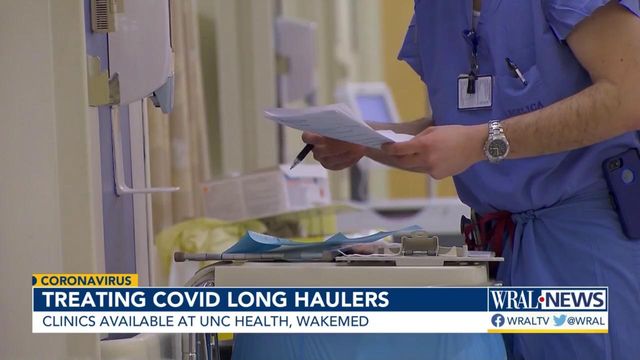5 long-term impacts of the pandemic
With the Covid pandemic hopefully crawling to a close and entering endemic status, the virus will remain with us for the foreseeable future. But the harsh impacts of the pandemic will be felt for years.
Posted — UpdatedWith the COVID-19 pandemic hopefully crawling to a close, the virus will remain with us for the foreseeable future.
However, the harsh impacts of the pandemic will be felt for years.
WRAL spoke with two experts about the top five long-term impacts from the pandemic. North Carolina State University political science professor Dr. Steven Greene and University of Southern California professor of gerontology Dr. Eileen Crimmins weighed on what we can expect for decades down the road.
“Do I want to say that COVID has made everything worse?” Green asked. “Yes, sadly, I do.”
Greene said the virus not only infected millions, but also government and how people view it.
“Sadly, what we’ve seen is existing political fault lines we have, have only been pushed further apart,” Greene said.
Healing those political wounds could take longer than the pandemic itself. With the political climate where it now in the United States, the long-term impact of COVID-19 on government tops our list.
COVID-19 has killed hundreds of thousands of people and sickened many more. However, Crimmins says the immediate impact is only the beginning of the story.
"The body doesn’t forget some of the insults it’s received even when it’s in utero or very young," she said.
Crimmins and her colleagues say the health impacts of COVID-19 will likely be felt for another 100 years. There’s historical evidence to prove their point.
“When you get to the age where chronic diseases are a regular and high prevalence problem then these things will show up, so that’s why I think 100 years,” Crimmins said. “It’s going to have some dent.”
From remote learning struggles to lost jobs, Crimmins says research dating back to the flu pandemic shows it’s a real concern. With today’s children out of the classroom for parts of two school years, experts say COVID-19 impacted their learning and widened the achievement gap between the rich and the poor, as well as racially.
Talking about research she has studied, Crimmins said there were some obvious conclusions.
"They found differences in education for those that were born right in that time," Crimmins said. "They found differences in height, differences in income."
Not all of the long-term impacts are negative.
Isolation, death and illness had a deep impact on people’s mental health. During the pandemic, it became more accepted to talk about and get help for mental health struggles.
"It’s been useful in shining a light on things," explained Greene when talking about how the pandemic exposed our mental health system.
Finally, another positive with a caveat. We should be better prepared for the next virus, but Greene emphasizes the word "should."
"Are we investing in the scientists?" Green asked. "Are we putting the necessary conditions in place so we’ve have this flu vaccine in place, so that we’ll have the billion N-95 masks that we might want then when something like that hits? I don’t know."
Greene says pandemic or not, our leaders are most often rewarded for short-term solutions, not long-term planning. The future will tell if number five ends up being a positive or a negative.
As an honorable mention, the world’s work force is a winner. The end result will be better work-family balance, as well as more opportunities for remote work as employers battle with others to hire workers.
Related Topics
• Credits
Copyright 2024 by Capitol Broadcasting Company. All rights reserved. This material may not be published, broadcast, rewritten or redistributed.





